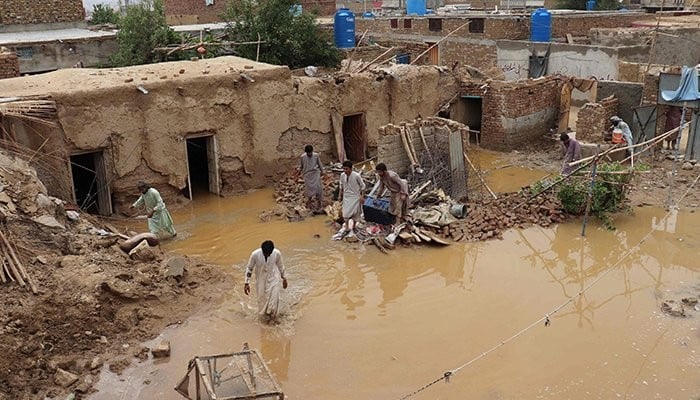The Provincial Disaster Management Authority (PDMA) reports that heavy monsoon rains and flash floods across Balochistan have resulted in more than 100 fatalities and have caused widespread damage to homes, roads, bridges, farmland, and livestock. Emergency rescue and relief efforts are being executed amidst significant infrastructural collapse.
Scale of the Disaster
- Human Toll:
PDMA confirms over 100 deaths, including men, women, and children, with dozens more injured due to floods, roof collapses, and flash landslides. - Homes Damaged or Destroyed:
Thousands of houses were either completely or partially demolished, displacing hundreds of families across multiple districts. - Infrastructure Collapsed:
Major highways (over 500 km) and dozens of bridges were heavily damaged, isolating key areas and disrupting connectivity. - Agricultural & Livestock Loss:
Flooding has devastated nearly 200,000 acres of farmland and killed hundreds of livestock, deepening rural economic distress.
Immediate Response Measures
- Rescue & Medical Efforts:
PDMA, local authorities, and army units are executing targeted relief operations, evacuating affected populations and providing medical assistance to the injured. - Relief Distribution:
Emergency supplies tents, quilts, kitchen sets, solar lights, and tarpaulins are being dispatched to displaced families in the hardest-hit zones. - Infrastructure Restoration:
Excavators, cranes, and heavy machinery are being deployed to clear debris from flooded roads and to rebuild damaged bridges under army supervision.
Challenges to Relief and Recovery
- Blocked Transport Routes:
Damaged roads and snapped bridges are severely hindering aid delivery and slowing rescue work in remote areas. - Water Safety Issues:
Damaged small dams and rising floodwaters increase risks of contamination and waterborne illnesses. - Complex Coordination Needs:
Effective relief demands seamless coordination across provincial agencies, local administrations, military support, and disaster response units.
Government Action Plan
| Response Area | Actions Underway |
|---|---|
| Clearing Vital Routes | Machinery and manpower deployed to open highways and repair key bridges |
| Mobilizing Relief Aid | Tents, bedding, solar lights, and kitchen kits supplied to victims |
| Restoring Basic Utilities | Urgent repair of water supply and irrigation systems |
| Health & Sanitation | Medical teams responding to injury, dehydration, and hygiene risks |
| Shelter & Evacuation | Temporary camps set up for displaced families |
What This Means for Balochistan
The monsoon’s devastation underscores Balochistan’s vulnerability to climate-linked disasters. Critical infrastructure failures threaten long-term recovery unless repairs are prioritized. The situation highlights the need for investment in climate-resilient infrastructure, robust dam safety protocols, and rapid-response frameworks to reduce future disaster impacts.



Comments (0)
No comments yet. Be the first to comment!
Leave a Comment